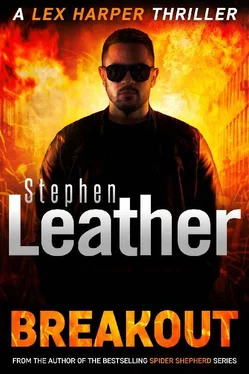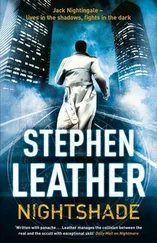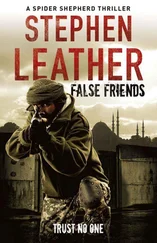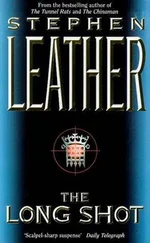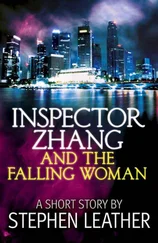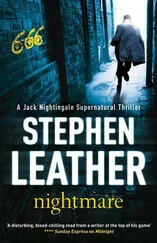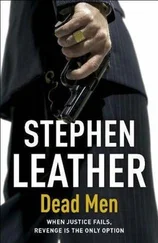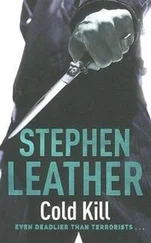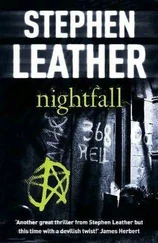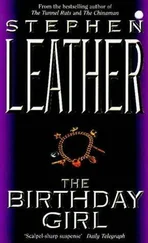Ricardo fired his gun and put a shot through the car windscreen, killing the front-seat passenger. The driver was already scrambling out of the car, but Harper’s first shot hit him in the shoulder and, though the second one flashed past the driver’s ear, he slumped to the ground alongside the car. As the men in the back-seat jumped out, firing wild bursts from their semi-automatics at him, Harper dived and rolled towards a parked car that would serve as cover, changing the Colt’s magazine even as he was still rolling across the pavement.
As he rolled behind the parked car, he heard shots from the rear of the hotel, the higher pitched crack of the Makarov, counter-pointed by a burst from a semi-automatic, and then two more shots from the pistols. Keeping a wary eye on the entrance to the side-street from which the survivors of that skirmish would soon emerge, he flattened himself in the dirt and peered along the road underneath the parked car. He had a clear view of the slumped body of the driver he had shot, but from this angle, it was impossible to tell if he was dead, mortally wounded or still capable of holding a weapon.
He could also see the feet of the other two gunmen, who were holding their fire until they saw their target. Both were crouching behind their car, one behind the front wing, with just the toe of his boot poking out from behind the tyre, and the other using an open car-door as cover. ‘Big mistake,’ Harper thought to himself. ‘If he knew what a Colt could do, he wouldn’t be hiding there.’ He aimed for the exact centre of the door panel and squeezed the trigger. The round drilled a neat circular hole through the front panel and then exploded out through the back one, smashing a jagged hole through the man’s solar plexus but still having enough residual velocity to sever his spine and burst out through his back, while shreds of metal from the car door tore the rest of his guts to shreds. There was no need for a second shot because no man could survive such an impact but, operating on autopilot, following the drills that would ensure a kill and guarantee his own survival, Harper had already swung the barrel and put the second half of the double-tap into the man’s head as he lay on the tarmac.
That left two targets: the man still crouching at the rear of the car and the driver who might or might not still be alive. Once more taking the most dangerous target first, Harper focussed on the man crouching behind the rear wing on the far side of the car. There was no point in trying to shoot him through the car. Although a .45 round from a Colt could punch through the sheet metal of doors and side panels, the engine block was an entirely different matter. The steel sidewalls of the tyres were also difficult obstacles that might block or at least divert a round away from its target.
Harper squeezed off another shot from the Colt at the only part of the man’s body that was not hidden by the car and the tyre. He saw the man’s exposed toecap explode into a mist of blood, bone and leather fragments. There was an unearthly scream as the man toppled over, howling in agony. He had fallen backwards, still behind the car, but Ricardo could get a clear shot and he pumped two rounds into the man’s chest.
Harper jumped to his feet sprinted across the street, keeping the Colt pointed at the prone body of the driver, the only one of the six who might still be alive. He dived for the far side of the gunmen’s car and then ran round the back, stepping over his victims’ bodies while the blood pooling around one of them, splashed from Harper’s boots as he ran. He paused a split second, then sprang out of cover. The driver’s eyes were open and though his shoulder was shattered, with a spreading blood stain covering his shirt, he still had a weapon in his other hand. His lips curled into a snarl as he saw Harper and his finger began to tighten on the trigger, but Harper was on him in one stride, kicking the weapon aside and drilling a round into the man’s head at a range of a foot, close enough for a spray of blood and brains to speckle his gun hand.
He caught a movement from the shadows in the side-street and swung round, bringing his weapon to bear, but he relaxed when he saw it was Lupa.
Harper grinned. ‘All good round the back?’
Lupa nodded. ‘One of them was on his phone, so he never got off a shot. The other fired a burst, but missed me and I hit him before he could fire again.’
‘Good work,’ Harper said. He glanced along the street. Emboldened by the silence after the last burst of gunfire, a few people were now emerging from cover and people in the upper floors of the buildings were leaning out of the windows, staring at them.
‘Just walk, don’t run,’ said Harper, slipping the gun into his jacket. ‘Nobody will do anything, they’re in shock.’
He walked briskly towards Ricardo’s car and Ricardo and Lupa fell into step either side of him.
Ricardo opened the driver side door and got in. Lupa got into the front passenger seat and Harper climbed in the back. He put his backpack on the seat and unzipped it so that he could store his Colt. ‘Drive slowly, Ricardo,’ said Harper.
Ricardo did as he was told.
‘Lupa, what’s the plan to get back to La Paz?’
She twisted around in her seat. ‘There are several companies that fly from around here to unofficial air strips near La Paz. Most of them use C-47 aircraft left over from World War II and don’t fly to any fixed schedule, but if you pay them enough, they’ll fly you like a taxi.’ Ricardo groaned. ‘Take no notice of him,’ said Lupa. ‘He hates flying.’
‘Flying I don’t mind,’ Ricardo said, ‘it’s crashing that bothers me.’
‘Well, if it helps, you’re probably safer in a C-47 than a modern jet.’ Harper said. ‘The reason there are still so many around the world is because they’re such a strong and reliable aircraft - easy to fly and easy to maintain. I’ve flown in them quite a few times in Africa and Asia, and I’m still here. Okay Lupa, let’s give it a go.’
They kept to the back roads out of the city and then headed into the countryside, passing fields full of fruit, rice, corn crops and a plant Harper didn’t recognise. ‘What are those?’ he said, gesturing out of the open window.
‘Quinoa,’ Lupa said. ‘It’s been a subsistence food here for hundreds of years, but since it become fashionable in the West, the entire crop is exported because hardly anyone here can afford it anymore.’
They drove on through the agricultural land and climbed the lower slopes of the mountains, cloaked with rainforest, before eventually arriving at a crude airstrip. There was a cluster of palm-thatched buildings, one open-sided hangar, roofed with corrugated iron, and a runway of beaten earth. At the near end of the strip, three Douglas C-47s were drawn up in a row.
‘Perfect,’ Harper said. ‘Good call, Lupa.’
‘A rangy man with a grey crew-cut and a grizzled weather-beaten face, prised himself out of a crumbling armchair in the shade of the hangar and strolled over to them. He nodded to Ricardo and Lupa but gave Harper a quizzical look. ‘American?’ he said, in what sounded to Harper like a Texan accent.
‘Brit,’ Harper said. ‘I’m Lex. Who’re you and who are you working for here?’
‘Name of Randy, and not the DEA, if that’s what you mean. I fly these old birds.’
‘Then you’re the man we’re looking for. Any chance you can fly us up to La Paz?’
Randy gave him a shrewd look. ‘Without attracting too much attention about it, right?’
‘Is that a problem?’
‘Hell no, my only issue is whether I’ll get paid.’
‘Let me put your mind at rest on that score,’ Harper said, reaching into his backpack. How much?’
‘Four hundred dollars and I’m yours for the day.’
Читать дальше
